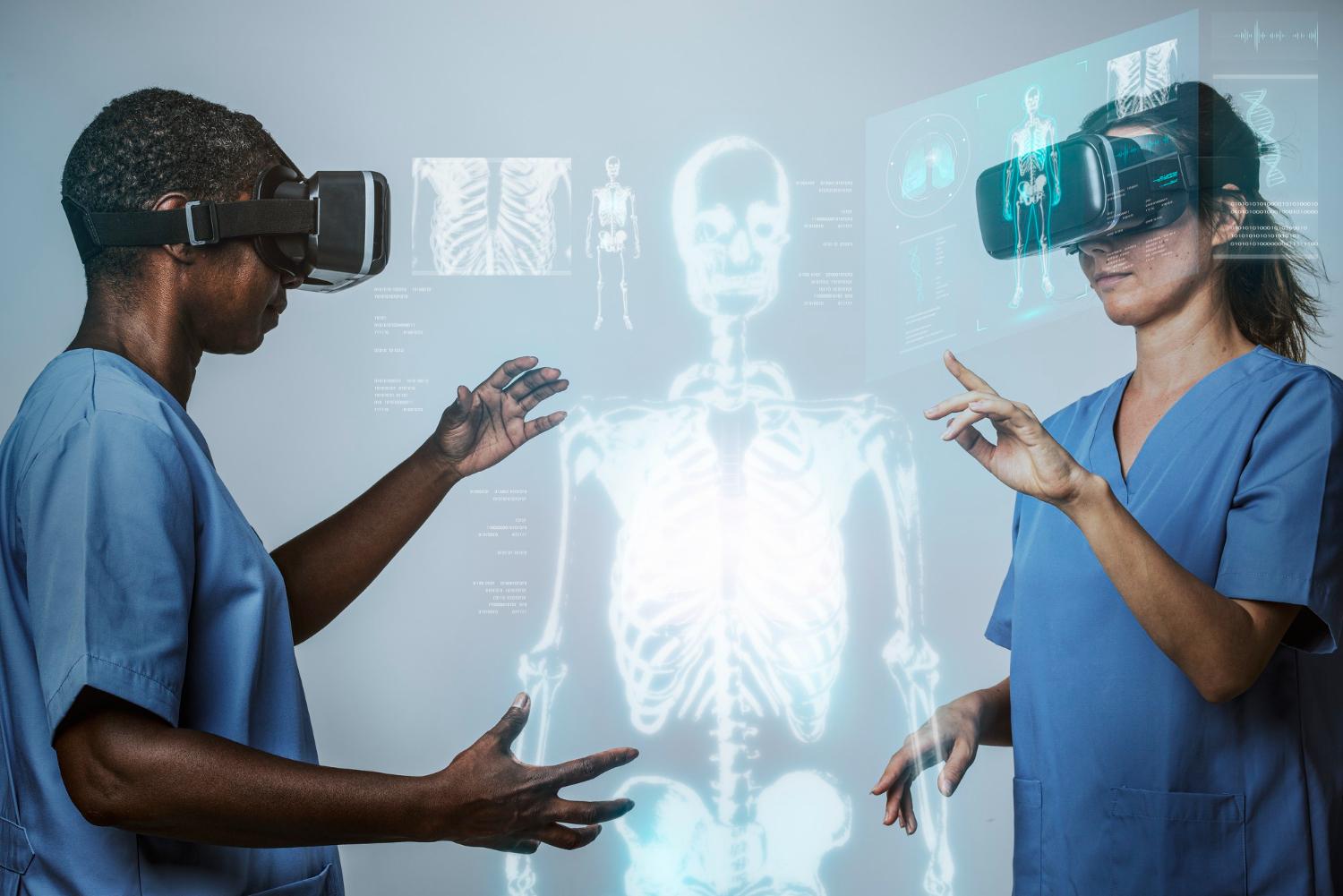Artificial Intelligence has had the most significant impact on human life, particularly healthcare, which is critical to improving human life's quality in the long run. With the integration of Artificial Intelligence (AI), the healthcare landscape has experienced a revolutionary shift, promising enhanced diagnostics, personalized treatment plans, and improved patient outcomes. This article explores the prominent role of AI in healthcare, delving into its applications, benefits, and challenges.
Understanding AI in Healthcare
Artificial Intelligence, a branch of computer science, encompasses developing intelligent systems capable of executing tasks that typically require human Intelligence. AI algorithms analyze complex medical data, extract meaningful insights, and support clinical decision-making processes in healthcare.
AI is increasingly applied in healthcare, including disease diagnosis, specific treatment planning, enhanced patient monitoring and interactions, medical research, and supporting administrative activities.
What are the different types of AI used in healthcare?
Artificial Intelligence (AI) can be used in various ways to support healthcare tasks and processes. Below are some of the most popular and important technologies used in healthcare.
Machine Learning (ML)
Artificial Intelligence (AI) has diverse applications in the healthcare industry, with Machine Learning (ML) being the most commonly used form. ML is used extensively in precision medicine to provide customized treatment plans for individuals based on their genes, lifestyle, and other factors, resulting in specific outcomes. Another popular form of ML is Deep Learning (DL), a neural network that categorizes raw medical data to drive valuable decisions in healthcare. For example, genetic research can predict if an individual is at risk of developing diseases such as cancer or heart disease.
Natural Language Processing (NLP)
AI has been working on understanding and interpreting human language for several years. To achieve this, Natural Language Processing (NLP) technology has been developed. NLP mimics human language abilities by recognizing spoken words and understanding text, allowing for meaningful communication or content creation.
In healthcare, NLP is used for speech-text analysis and translation, creating medical documentation, and improving diagnostic models and triage systems.
Physical Robots
The introduction of robotics has found its place across several industries, and the medical field remains no exception. Since their approval in 2000, surgical robots have taken surgical procedures faster and more accurately. Robots can present benefits such as incisions that are minimally invasive, 3-D mapping of the areas wherein a procedure is being intervened for better visualization, and quicker suturing of incisions to assist mistakes in being minimized while allowing surgeries to have an increased success rate.
Robotic Process Automation (RPA)
Robotic Process Automation (RPA) is not at all robotic, despite what it means, because it relies on the use of computer programs called bots to complete repetitive tasks. This technology is being increasingly adopted in the health industry to streamline administrative functions and fine-tune support systems to deliver highly productive returns in terms of efficiency and patient care. By using this technology, appointment scheduling for the clients, updating the health records of the patients, processing claims filed by the insurance holders, settling charges, and so on are handled seamlessly.
How AI Improves Healthcare
Accurately diagnose and minimize the risk of errors
It is crucial to diagnose medical conditions in healthcare accurately. Misdiagnosis can result in significant medical expenses, physical pain and suffering, and even loss of life. Although still in the early stages, AI has the potential to diagnose certain diseases, including cancer. By utilizing advanced capabilities such as Machine Learning (ML) and Natural Language Processing (NLP), AI can quickly analyze medical histories, learn from human expertise, and adapt to complex algorithms to diagnose medical conditions accurately, similar to specialized practitioners.
Monitor patients using virtual nurses or bots.
AI technology can provide healthcare support both in hospitals and remote locations. For instance, virtual nurses using AI capabilities can monitor the activities of critically ill patients in ICUs or assist with analyzing blood reports and images for diagnosis and advice in remote areas. AI-powered virtual bots can also facilitate 24/7 communication with patients, answering questions regarding admission and doctor availability and providing help with diet schedules, among other things.
Aid in the development of new drugs
The medical field constantly evolves, and finding new drugs requires much effort. Artificial Intelligence (AI) has proven helpful in this process because it performs tasks efficiently and accurately using machine learning. AI-based models can perform multiple tasks simultaneously, identify the correct resources, and take over every clinical trial stage to monitor, analyze, and produce reliable results in a shorter turnaround time. This can bring much promise in tackling constantly evolving or newly discovered diseases.
Manage medical data and maintain patient records
The healthcare industry heavily relies on data, and losing it can take time and effort to progress and innovate. Artificial Intelligence (AI) can efficiently handle huge amounts of relevant data, classify them accurately, and store them securely for future use. AI with deep learning can record doctor-patient interactions and other important information for future analysis along with maintaining current EHRs.
By harnessing the true power of AI, healthcare providers and medical suppliers can unlock new insights, streamline clinical workflows, and ultimately improve patient outcomes. However, understanding the full potential of AI in healthcare requires collaborative efforts from stakeholders across the healthcare ecosystem to address challenges and harness its transformative capabilities responsibly and ethically.
